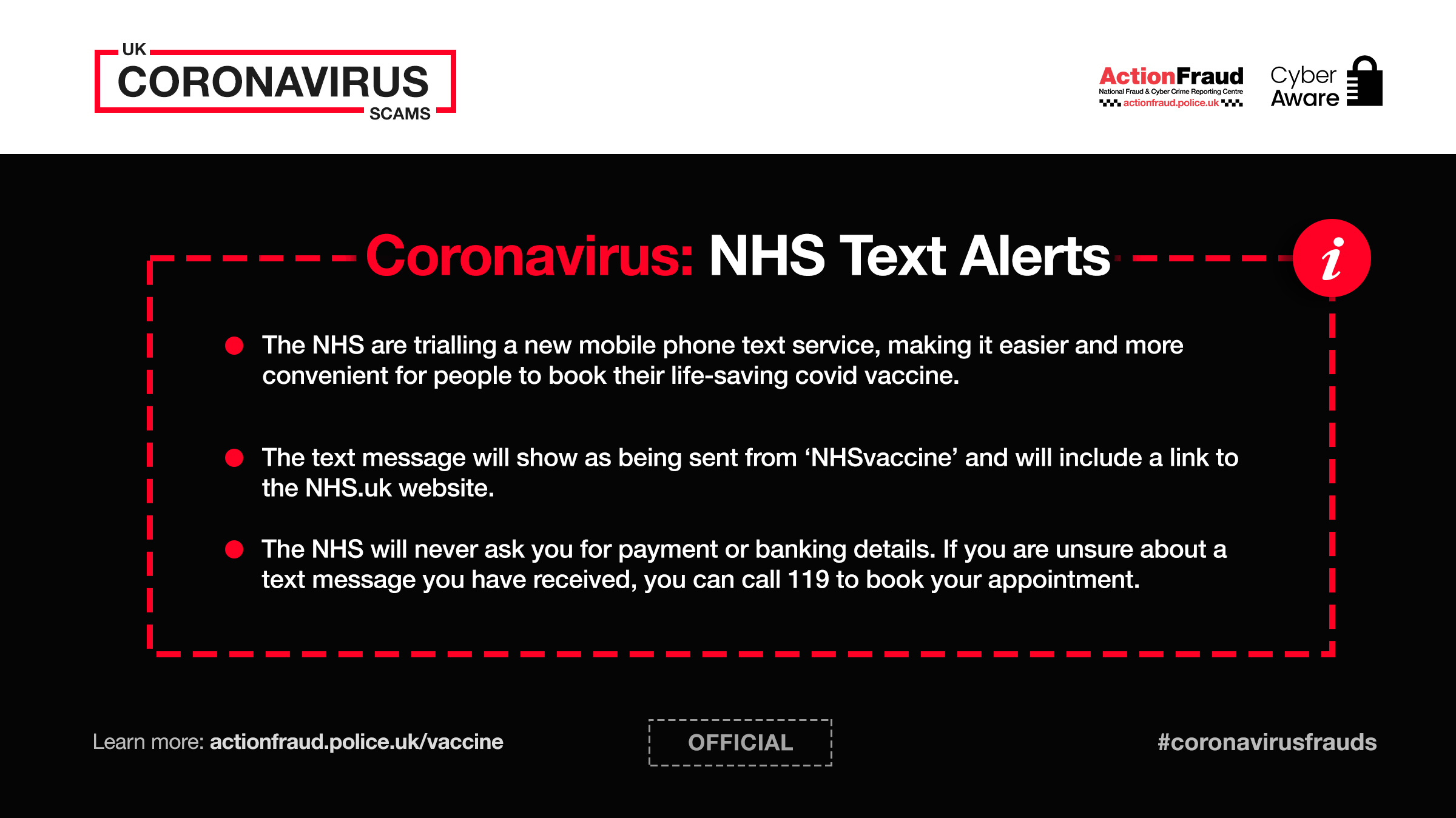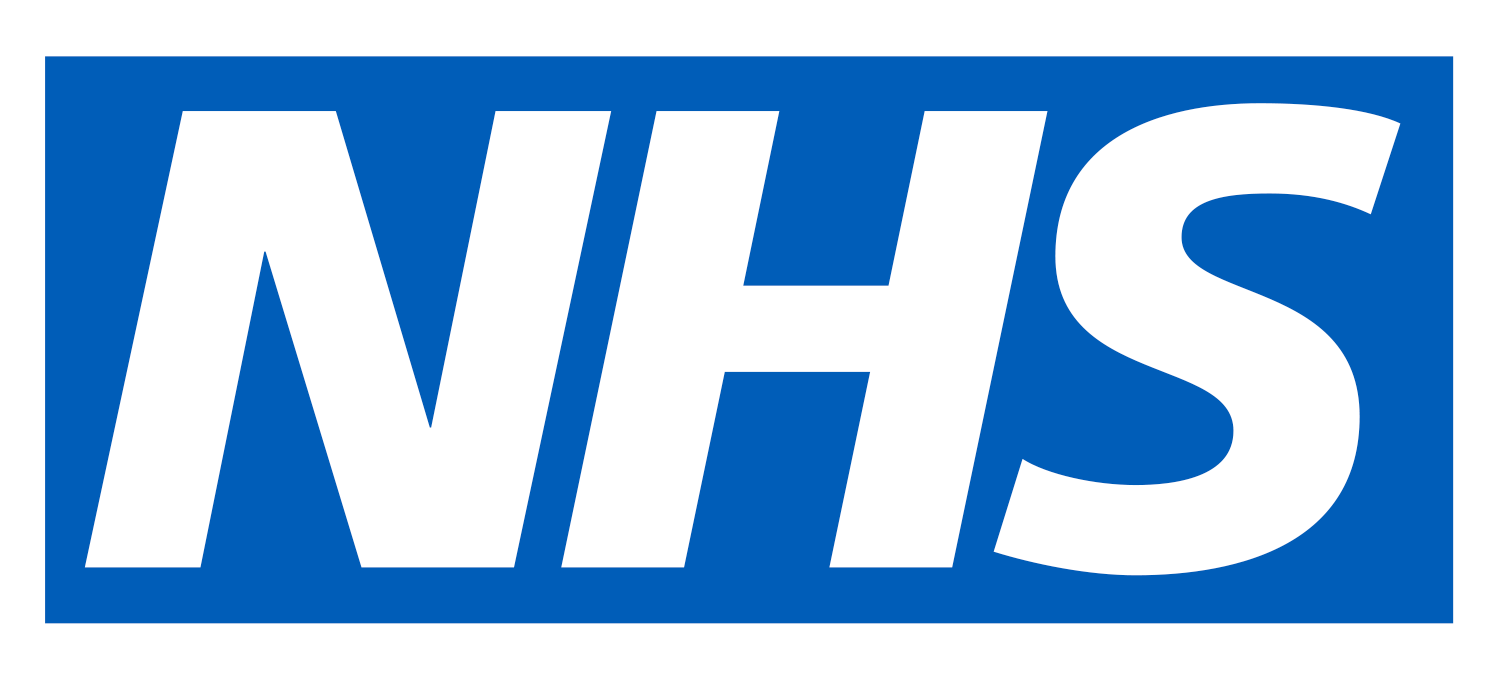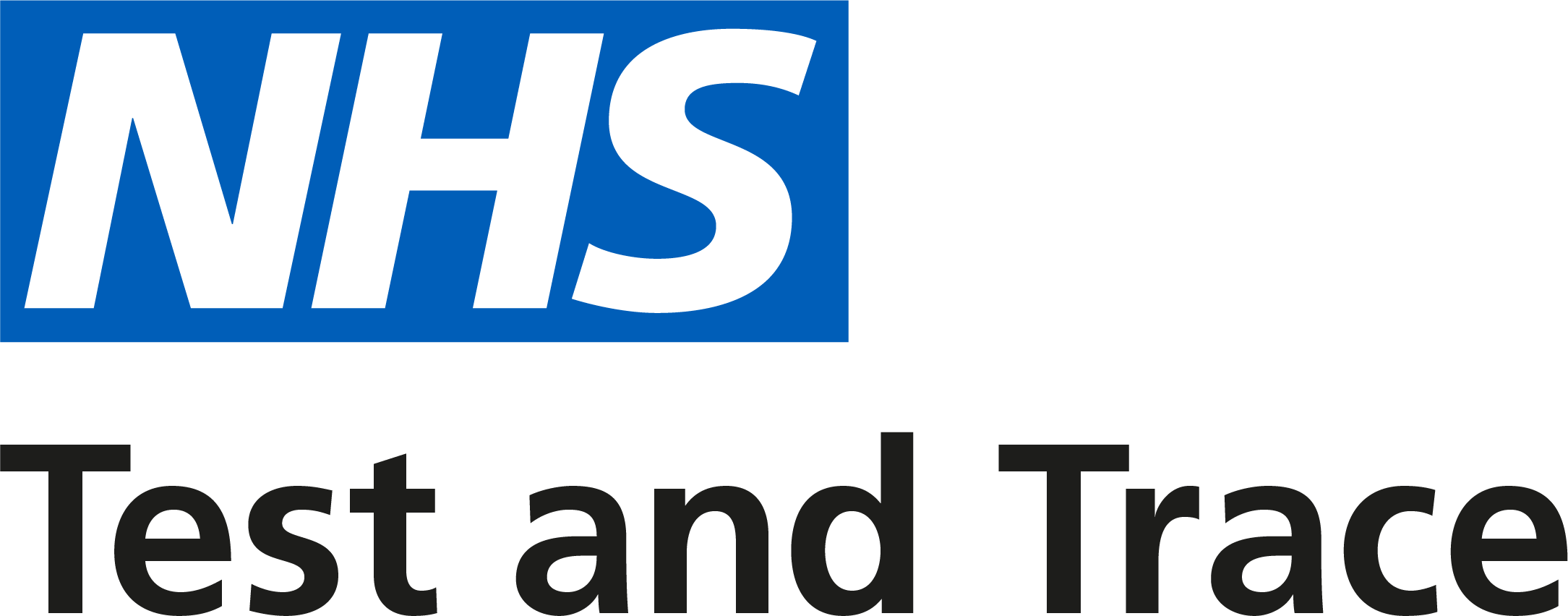The NHS will begin texting people today inviting them to book their life saving Covid jab, making it quicker and more convenient to get an appointment.

Almost 400,000 people aged 55 and over and 40,000 unpaid carers will be the first to get a text alert inviting them to book a slot as part of the latest development in the NHS vaccination programme, the biggest in NHS history.
The messages will include a web link for those eligible to click and reserve an appointment at one of more than 300 large-scale vaccination centres or pharmacies across England.
Reminders will be sent 2-3 weeks after the original alert to encourage people to get their vaccine if they have not taken up the offer.
Texts will arrive in advance of the standard letter, meaning if the trial is successful the solution could enable the NHS to react faster to changing vaccine supplies and fill appointments quickly.
NHS national medical director Professor Stephen Powis, NHS medical director, said: “Thanks to careful planning and the huge efforts of NHS staff we have vaccinated more than 18 million people in England, which is a remarkable achievement.
“The NHS vaccination programme, the biggest in health service history, continues to go from strength to strength and we are now building on that momentum by trialling a quick and easy service that will hopefully make it more convenient for people to book their life saving jab.
“I had my vaccine this week – it was simple, quick and painless – and I would encourage others who have not yet taken up the offer to come forward and receive the jab.”
Some GP-led and hospital vaccination services, which operate their own booking systems, are already using texts for invites.
Introducing them to the national booking service for vaccine centres and pharmacy-led services will help increase uptake of the life-saving jab, particularly as the NHS moves on to younger groups.
Over the weekend and yesterday more than 1.7 million people aged 56 and over were invited to book their vaccine, as the biggest programme in health service history, continues to gather pace. Saturday was the busiest day for the booking service with more than half a million appointments confirmed. Almost nine out of 10 people aged 65 and over already taking up the offer of their first dose.
People will continue to receive letters inviting them to book an appointment as well as a text alert, to ensure that people who don’t have a number registered or need information in different languages or formats don’t miss out.
People should not receive a text message or a letter from the NHS if they have already been vaccinated and this has been recorded. If people cannot or would prefer not to travel to a Vaccination Centre or pharmacy-led site, they can choose to wait to be invited by a local GP-led service.
In some cases text messages have been used by scammers to try to collect personal details from people, get them to ring premium rate numbers or enter their banking details.
The text message will be sent using the Government’s secure Notify service and will show as being sent from ‘NHSvaccine’.
The NHS will never ask for payment or banking details.
Dr Nikki Kanani, GP and NHS medical director for primary care, said: “We know that some people are rightly worried about scams going around, but if the message comes from ‘NHSvaccine’ and links to the NHS.uk website you can be sure that it’s the right invite.
“For any messages you might get about the vaccine, always remember that the NHS will never ask you for your bank account or card details, your PIN or banking password.
“The NHS will also never arrive unannounced at your home to administer the vaccine, or ask you to prove your identity by sending copies of personal documents such as your passport, driving licence, bills or pay slips.”
Vaccinations are now being administered at more than 1,600 sites across the country, including mosques, museums and rugby grounds, with the distribution of centres meaning 98% of the country lives within 10 miles of at least one vaccination service.
Appointments are staggered to allow for social distancing and people are being asked not to turn up early to avoid creating queues.
Everyone receives a health status check and a pre-vaccination assessment before they receive their vaccine dose.
NHS teams are also visiting those who are housebound and cannot travel to a vaccination service.
The NHS made history when Maggie Keenan became the first person in the world to be protected against coronavirus outside of a clinical trial when she received the Pfizer vaccine at Coventry Hospital on December 8.
The NHS was also the first health system to deliver the new Oxford AstraZeneca coronavirus vaccine when Brian Pinker, 82, was vaccinated on January 4.



